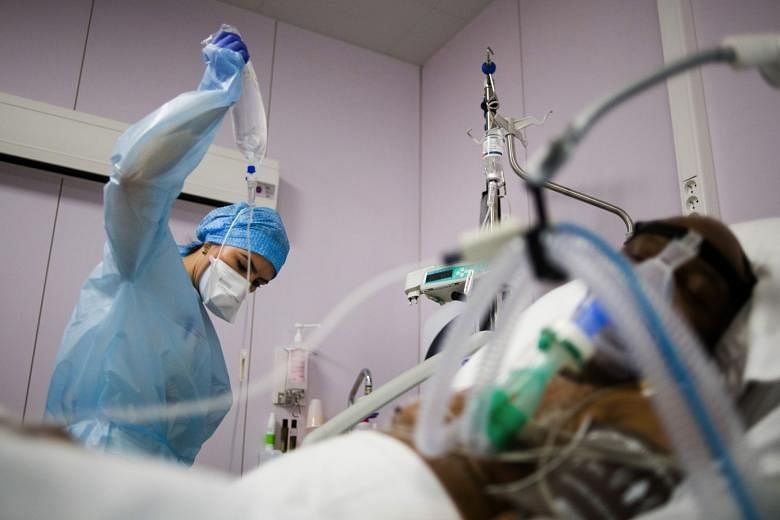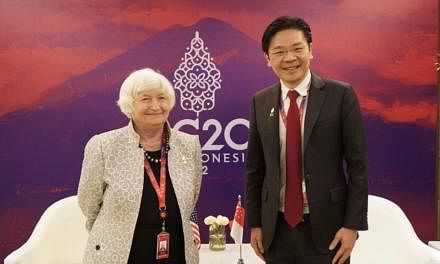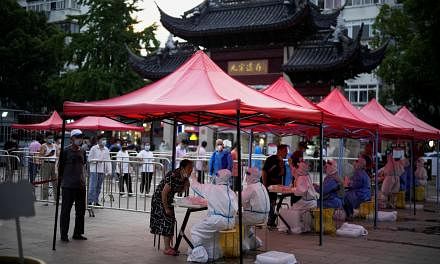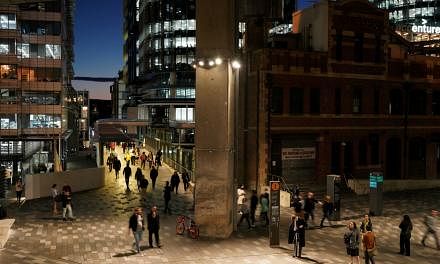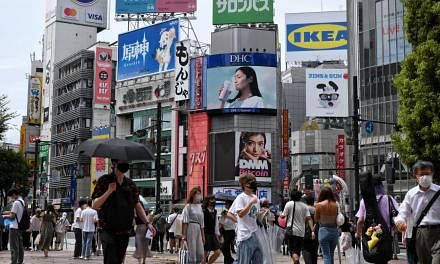PARIS (AFP) - The coronavirus is spreading through France faster than at the peak of the first wave in spring, with the country set to break through the 1,000,000 cumulative tally on Friday (Oct 23), a government scientific adviser said, in one of the starkest alerts yet about the scale of the resurgence engulfing Europe.
France reported 41,622 new Covid-19 cases on Thursday, a new daily record, and the one million case-tally is set to serve as a grim milestone for the government as it and other European capitals battle to keep their economies open.
Thursday's figure of 165 fatalities in 24 hours is still well below the April peak, when the death toll soared to more than 900 a day.
The warning from epidemiologist Arnaud Fontanet came as the country's finance minister said the economy was likely to shrink again in the fourth quarter as a result of the nightly curfews and other restrictions imposed to tame the virus.
France's second wave of coronavirus could be worse than the first, the boss of Paris public hospital group AP-HP said.
With fast-rising pressure on hospitals, France has expanded a 9pm to 6am curfew to cover 46 million people, more than two-thirds of its population.
"There has been a perception in recent months that a second wave does not exist, or that it is a small wave. The situation is the opposite," Mr Martin Hirsch told the RTL broadcaster.
"It is possible that the second wave will be worse than the first," he said, warning of a "daunting" challenge ahead.
"The virus is circulating more quickly than in the spring," Dr Fontanet, who sits on the Scientific Council advising the government on its Covid response, told BFM TV.
France's three-month-long lockdown had brought the virus under control, Dr Fontanet said, but with it came a false sense of security during the summer.
By late July, the caseload was trending higher again, though it was a cold snap that altered the disease's trajectory, he added.
"There was one cold week in September and all the indicators went the wrong way again all over Europe. The virus spreads better in the cold because we live more inside," he said.
France's healthcare system is again buckling under the pressure even though doctors say the average Covid patient's stay in ICU is twice as short as during the spring peak as medics learn how to better tackle the disease.
Covid patients occupy nearly half of all the country's 5,000 ICU beds.
Prime Minister Jean Castex conceded that hospitals were likely to come under pressure.
"The new cases of today are the hospitalised patients of tomorrow. The month of November will be difficult," he wrote on Twitter.
Mr Hirsch said the average age of intensive care patients in AP-HP's hospitals was 62.
Many were older people who self-isolated but were infected when their children visited them.
And Mr Hirsch said the real number of cases was likely to be much higher than official tallies, as many asymptomatic carriers are never tested.
"There are many positive people, infectious, in the streets without knowing it and without anyone else knowing it," he said.
Mr Hirsch said the leave of some hospital workers had been cancelled ahead of "this daunting month of November".
Finance Minister Bruno Le Maire's warning of a strong risk of contraction in the French economy, the euro zone's second-biggest, in the fourth quarter underscored concerns a double-dip recession may loom ahead for the single currency bloc.
French business activity contracted more sharply than expected in October, IHS Markit data showed, with firms unlikely to commit to large-scale projects.
"With the European winter fast approaching, the prospect of a sharp drop in new positive cases and a full reopening of the economy seems unlikely," said IHS Markit economist Eliot Kerr.
Mr Le Maire said the curfews would cost the government 2 billion euros (S$3.21 billion) in financial aid for companies.
The curfew is hurting the hospitality sector particularly hard.
Many restaurateurs are shutting their doors rather than limp on with a reduced service.
"We hope to see you soon," Michelin-starred chef Michel Sarran wrote on a notice declaring his restaurant's indefinite closure.
